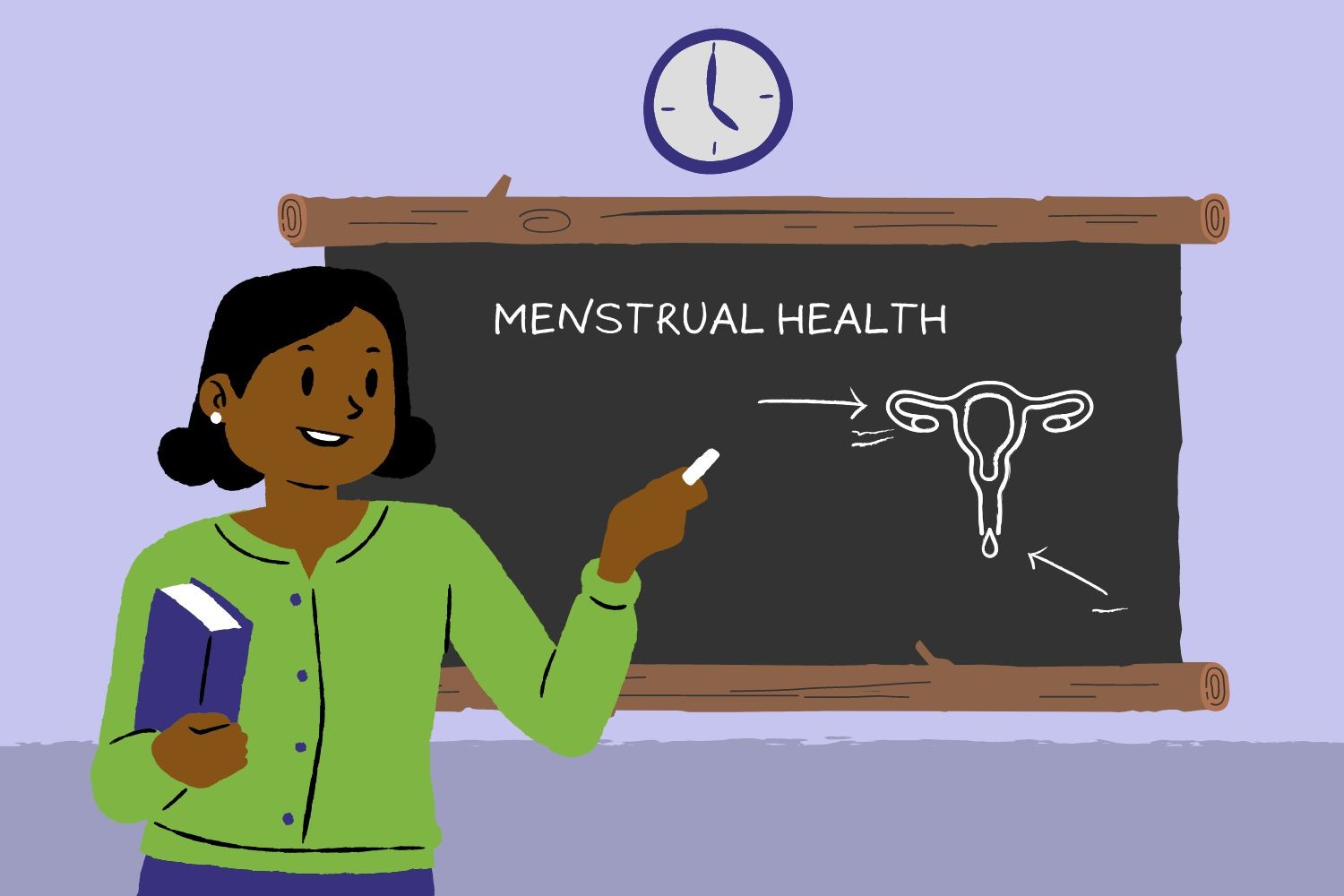
6 Benefits of Menstrual Education That Promote Menstrual Health and Equity
Menstrual education is important in promoting both menstrual health and menstrual equity for all who menstruate. This article will explain menstrual education and discuss some of its many benefits.
What is Menstrual Education?
The term menstrual education describes the spreading of knowledge surrounding menstrual periods and related healthcare topics. Menstrual education aims to teach others about why menstruation occurs, the menstrual cycle, healthcare practices, and more. Most importantly, it works to normalize discussions surrounding menstrual periods in everyday spaces, including schools.
According to a report from UNICEF and the World Health Organization (WHO), only 2 in 5 schools worldwide (39%) provide menstrual health education for students. This is a clear issue that requires addressing, especially when menstruation impacts so many lives every day.
6 Benefits of Menstrual Education
1. Provides awareness on menstrual hygiene and self-care practices
With the help of menstrual education, people can learn more about menstruation and what it means for them, including important menstrual hygiene and self-care practices.
According to the Centers for Disease Control and Prevention (CDC), good menstrual hygiene can help you remain healthy and comfortable during your period. It can also strengthen your sexual and reproductive health and give your body more opportunities to grow and develop.
On the other hand, poor menstrual hygiene can promote bacteria buildup, infections, and even more serious health issues, in some cases. The risks surrounding poor menstrual hygiene make menstrual health and education absolutely essential and stress the importance of good menstrual hygiene in one’s healthcare routines.
2. Reduces stigmas surrounding menstruation
Menstrual periods are often stigmatized, leaving many young girls without the resources and proper knowledge of periods needed to ensure that their healthcare is both adequate and supported. Menstrual education focuses greatly on fostering a culture of open communication surrounding natural bodily functions that are too commonly treated as taboo. This helps girls learn to embrace their periods with dignity rather than shame and encourages everyone to fight against menstruation’s stigmatization.
3. Increases female school attendance and education
Menstrual education makes it possible for more young girls to attend school and get an education, which is extremely important to their growth and development. UNESCO estimates that one in ten girls in Sub-Saharan Africa miss school during their menstrual cycle, which can amount to 20% of the school year. However, educating girls on how to prioritize their menstrual health eliminates a major barrier between girls and their educational pursuits.
Supporting female education is important in reducing harmful gender disparities and giving girls the opportunity to build better lives for themselves. Female education allows girls increased access to economic independence, better career prospects, and a future where they are empowered to make a difference in the world around them.
4. Increases access to menstrual healthcare
Menstrual education increases access to beneficial healthcare supplies and services, including:
- Menstrual products (ex. pads, tampons, and cups)
- Sanitary facilities
- Doctors and other healthcare professionals
- Free menstrual products in public facilities (ex. public bathrooms)
Menstrual education also helps to prevent unintended pregnancies (many of which pose danger to the lives of the mothers) and decrease maternal mortality rates worldwide. In Sub-Saharan Africa, maternal mortality rates are among the highest in the world—according to the World Health Organization, Sub-Saharan Africa alone accounted for 70% of global maternal deaths in 2020.
Without access to proper healthcare supplies and services, safe, healthy menstruation is much harder to achieve. Because of this, menstrual education is an important part of healthcare and required to make healthcare more accessible for all.
5. Reduces period poverty
Period poverty refers to the lack of access that many have to proper menstrual hygiene products, sanitation facilities, education, etc. As a result of period poverty, many women and girls do not receive adequate menstrual care, resulting in significant disadvantages to their health and well-being.
Period poverty exacerbates the vicious cycle of poverty by further marginalizing those who menstruate, causing them to withdraw from daily life, forego pay, or miss educational opportunities. Therefore, raising awareness on period poverty through menstrual education is important in encouraging positive period representation, menstrual dignity, and healthy living for all.
6. Empowers others to become menstrual health/equity advocates
Educating others on menstruation helps to build the next generation of menstrual health/equity advocates. When women and girls are empowered to embrace their periods with dignity rather than shame, they empower those around them to do the same. The more people who join the cause, the more opportunities for positive change in communities worldwide.
How Can I Support Menstrual Education with No Limit International?
No Limit International is dedicated to promoting menstrual health and education throughout Sub-Saharan Africa and the world. You can help support this mission by donating, supporting education initiatives, and advocating for better access to hygiene resources.
Monetary donations of any amount through our donation form are greatly appreciated. You can also donate menstrual products by contacting us via phone or email. Join us as we break barriers, erase stigmas, and provide essential resources for menstrual health and hygiene across Africa.
To learn more about No Limit International, give us a call at +237 699 99 02 89 / +237 675 80 85 10 or contact us via email at info@nolimitinternational.org. Together, we can ensure healthy living for all.